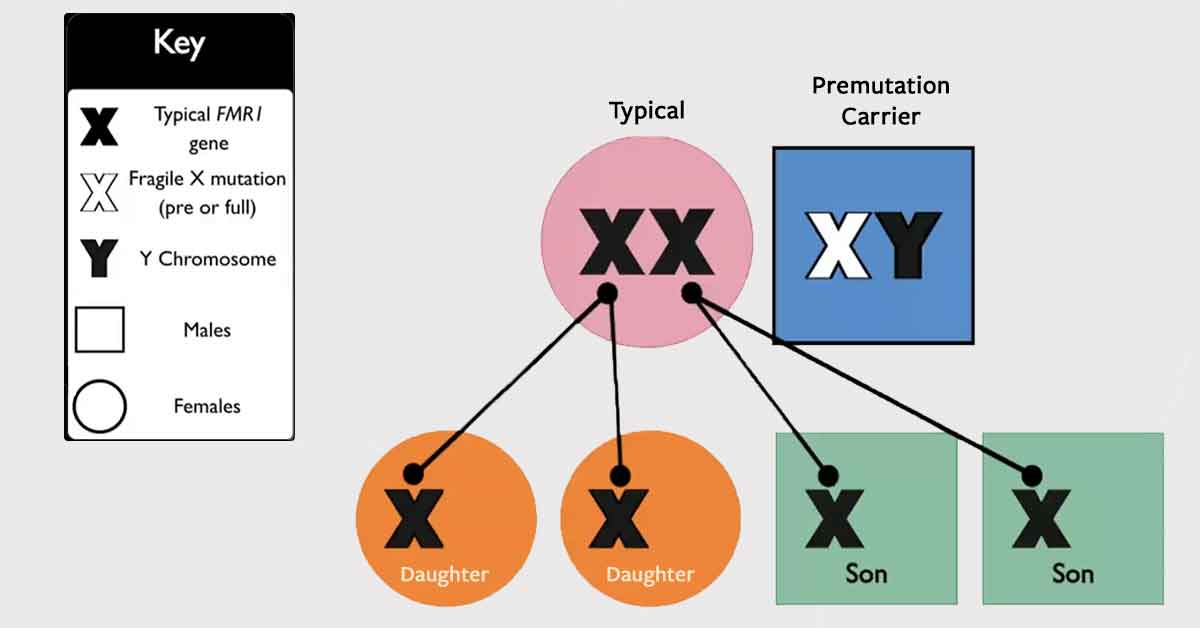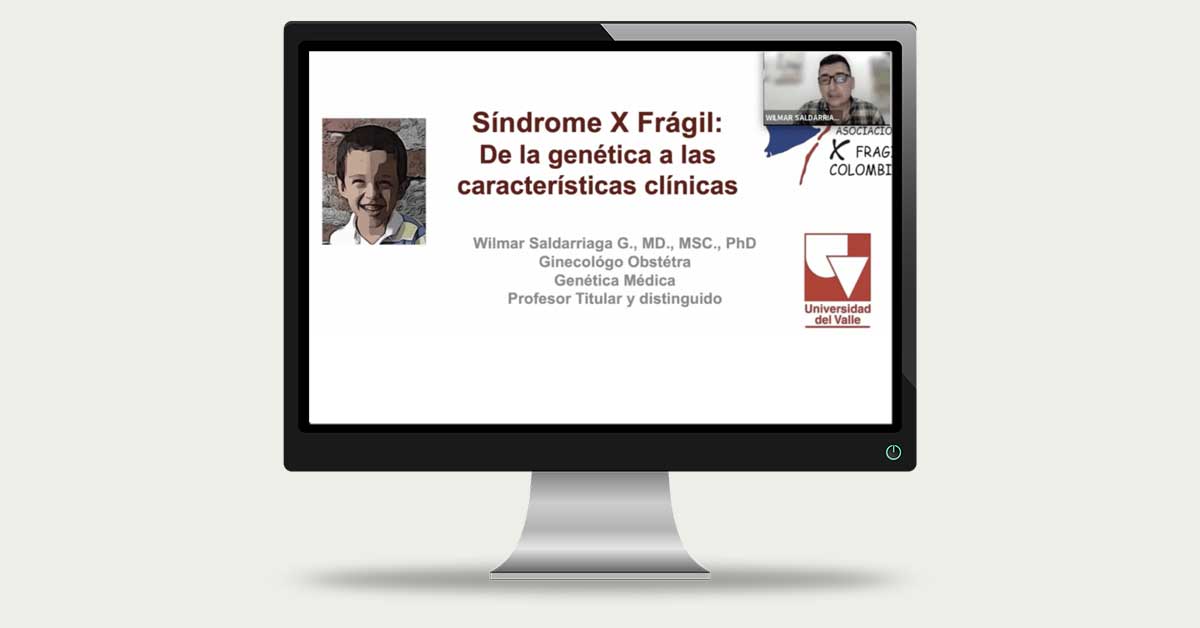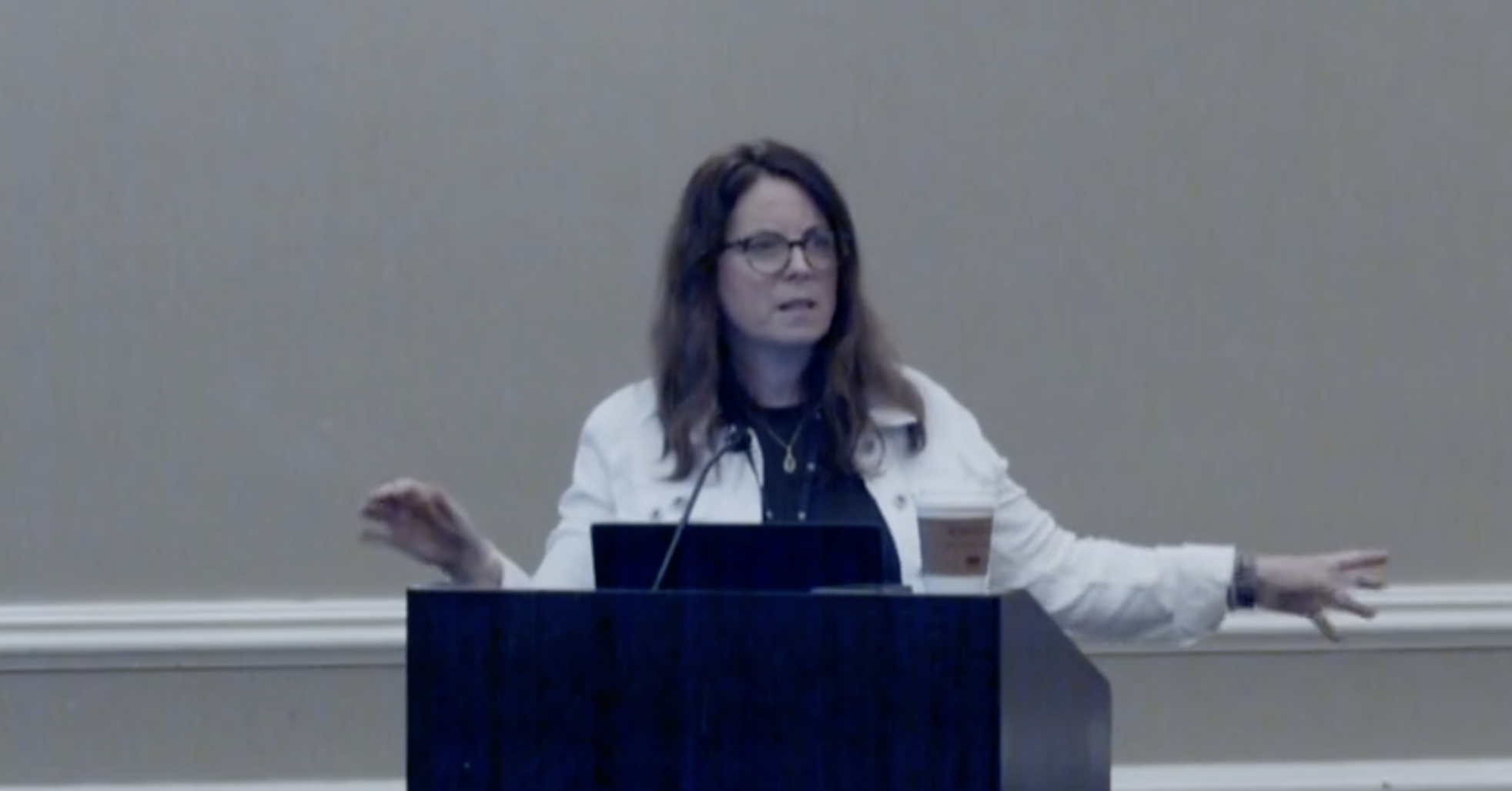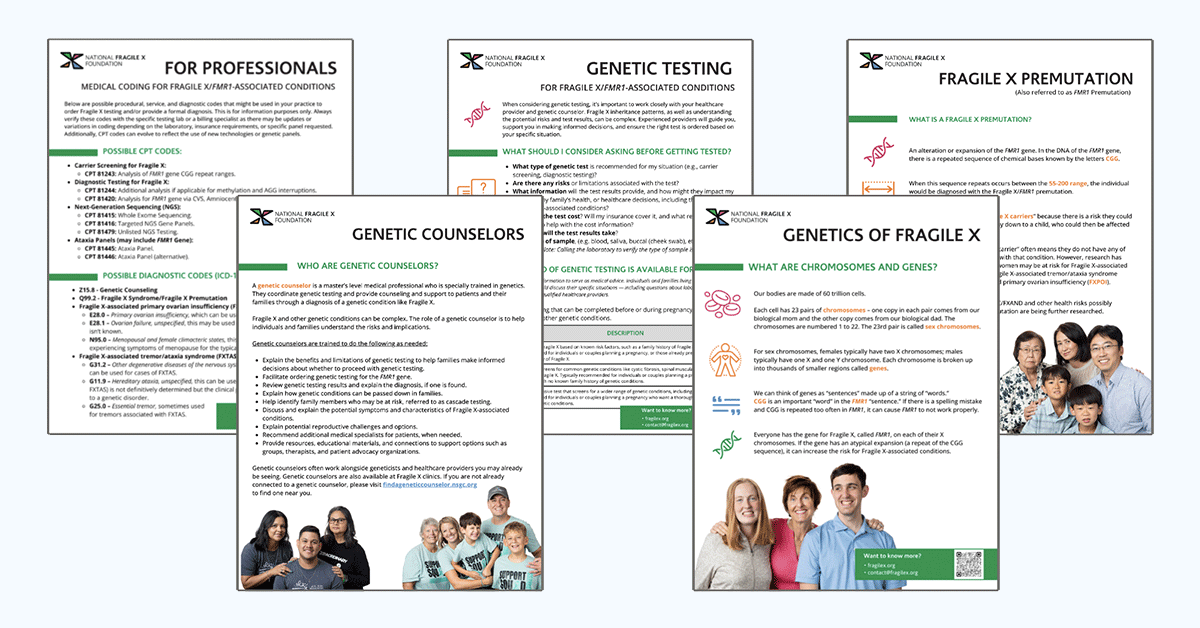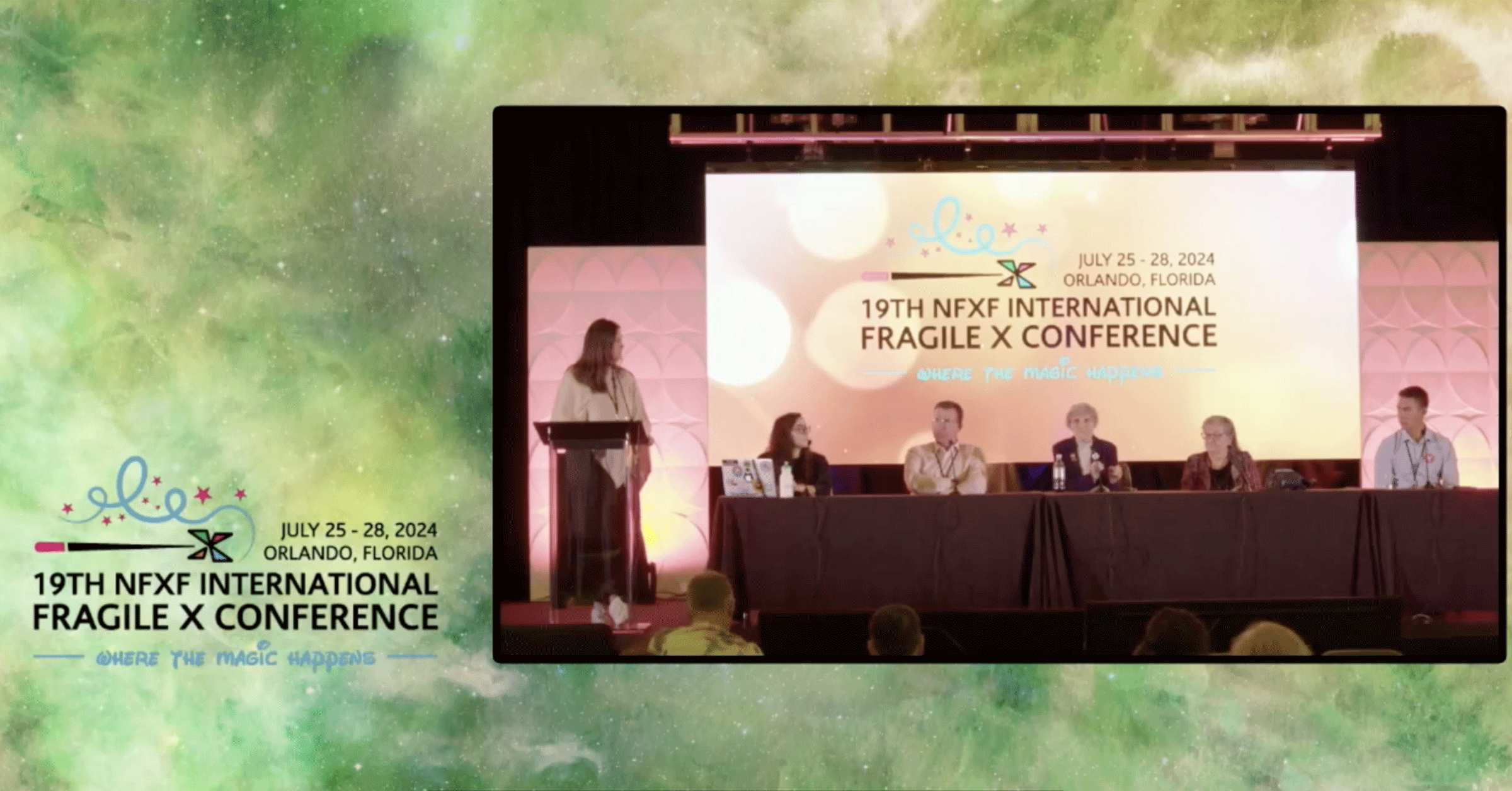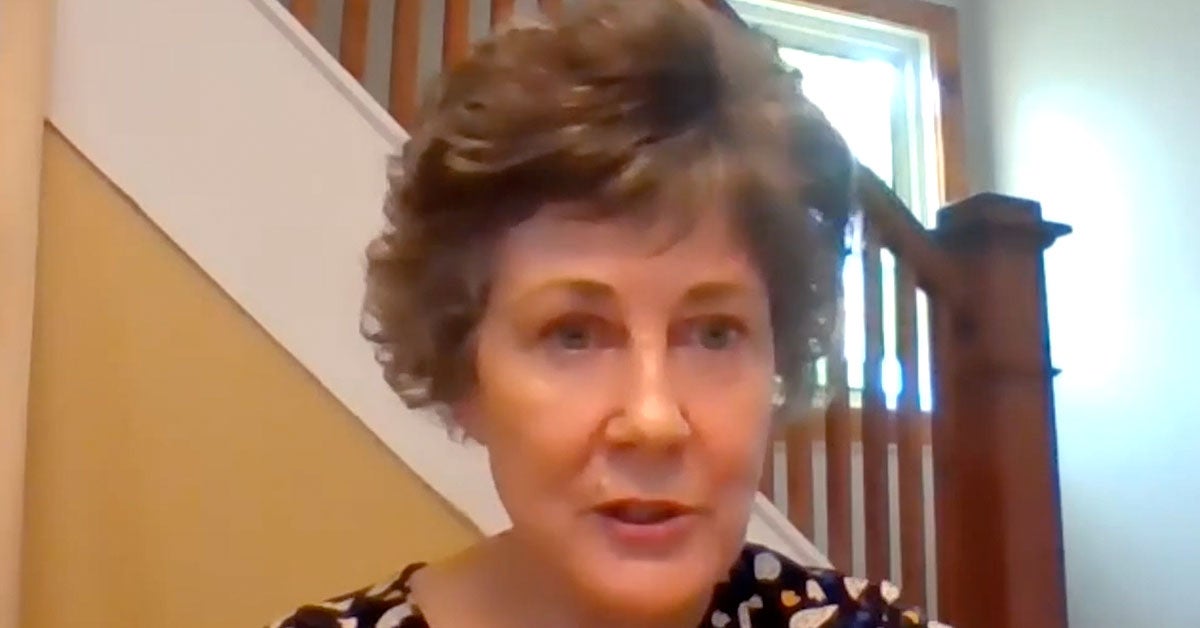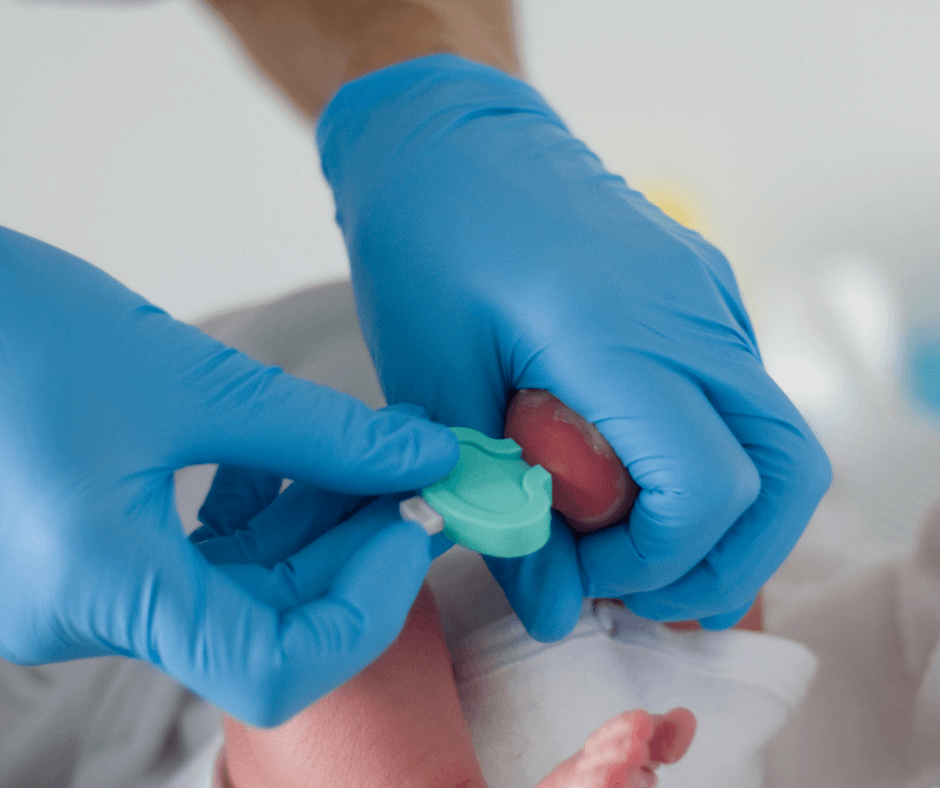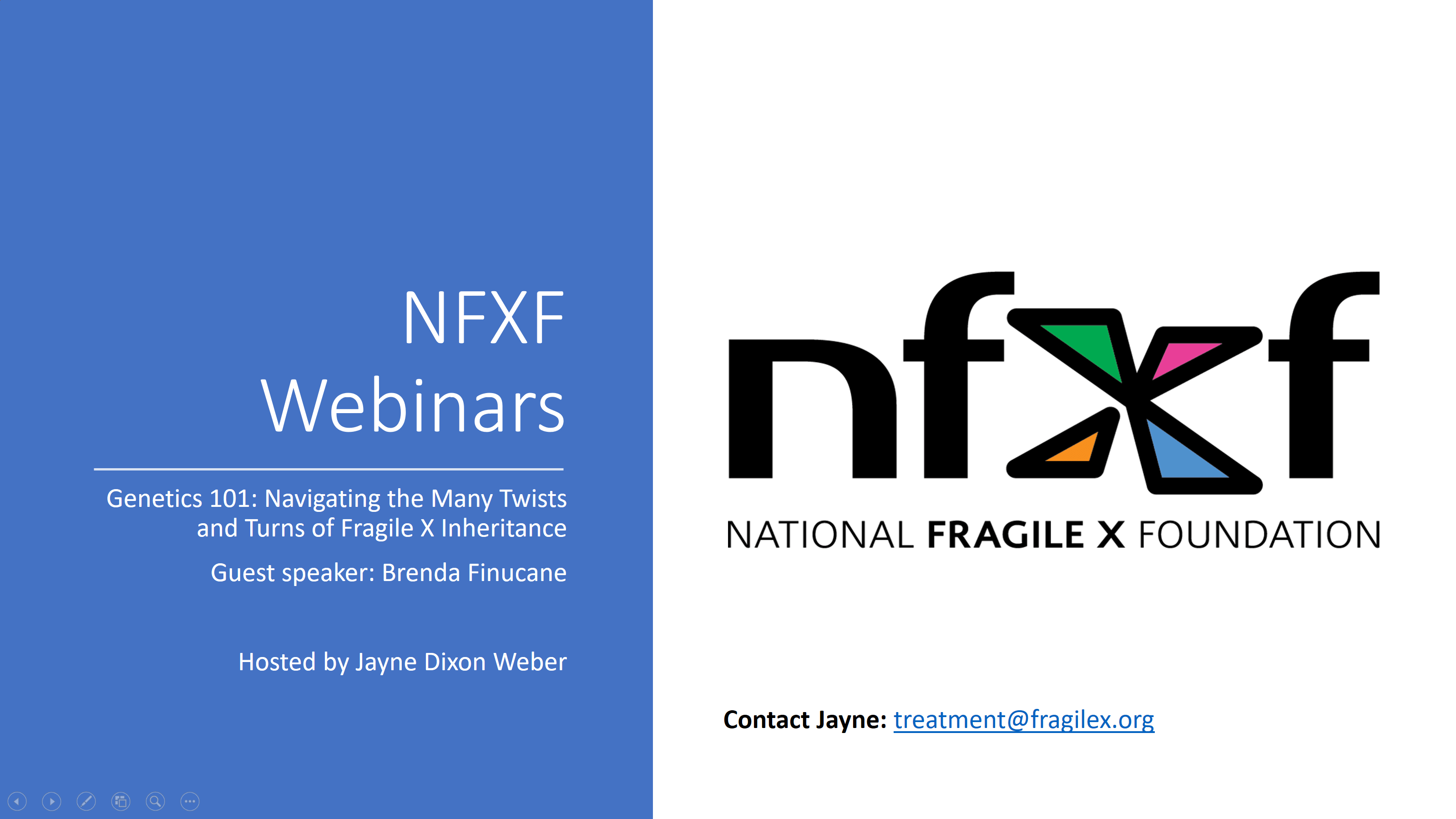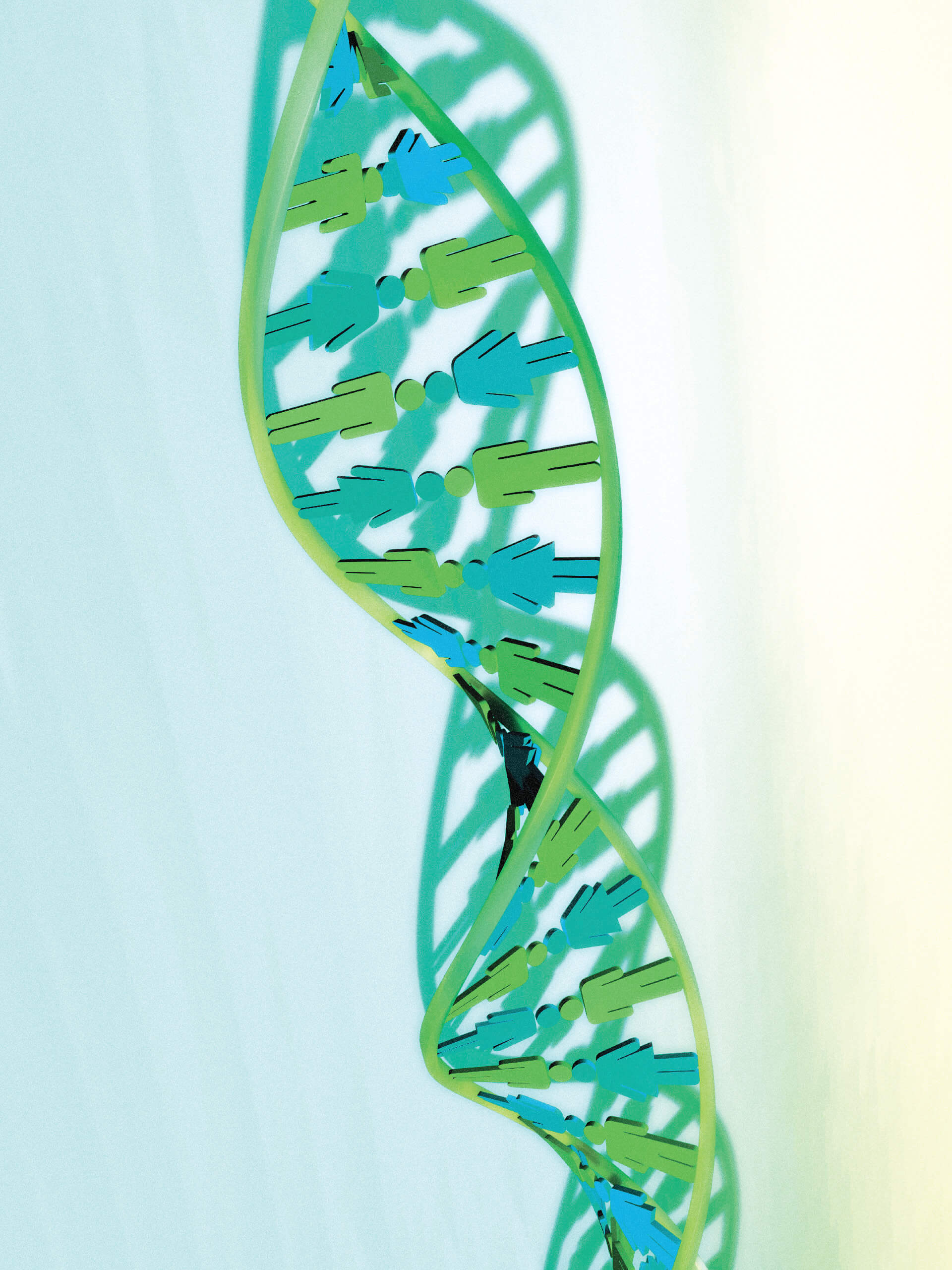How Fragile X syndrome is inherited is a very common question and one of the first things a newly diagnosed family asks. Let’s be clear — Fragile X is an inherited condition.
Dres. Wilmar Saldarriaga Gil y Ana María Cabal se unen a Johana LaTorre, Judith García, Nelsy Garzón, María Vera, Carolina Rabazani y Facundo Mattea para discutir la genética y las características clínicas del síndrome de X frágil.
Genetic counselor Susan Howell explains how to help self-advocates and siblings understand genetic results, associated reproductive implications, and the landscape of reproductive options.
Valuable resources to share with your care team or anyone seeking a better understanding of the genetics of Fragile X, including the Fragile X premutation, and answer questions about genetic testing and genetic counseling.
The NFXF held its first gene therapy panel discussion at the 19th NFXF International Fragile X Conference. While gene therapy looks to be a promising avenue for future FXS treatment, there is still a lot to learn and a long road ahead.
A panel of genetics professionals covers a wide range of topics, highlighting the complexity of Fragile X genetics and emphasizing the critical role of a genetic counselor as part of your healthcare team, providing valuable guidance throughout the entire process.
Each type of gene therapy has its own unique applications, benefits, and challenges. Although there are currently no FDA-approved gene therapies for FXS, ongoing research continues to expand the possibilities in this exciting field of medicine, and what seemed before like a lifetime away, is a much closer reality.
Although there are currently no options for approved or experimental gene therapies for FXS, gene therapies in other diseases and conditions do exist and are helping people today.
With the possibility of gene therapy getting closer and closer, many researchers are interested in knowing where the Fragile X community stands on the topic.
Because there are genes known to be associated with autism — Fragile X being the most common — it is important to test for the presence of an underlying genetic disorder.
Research Result: Overall, the study results suggest a possible treatment to restore FMRP in individuals with FXS. These findings also suggest that abnormal RNA sequencing events identified in white blood cells may serve as powerful biomarkers for FXS.
Brenda Finucane, MS, CGC, guides us through understanding the complexities of the genetics behind Fragile X disorders.
Early Check screening for Fragile X will give researchers important information about how Fragile X affects infants and toddlers before any signs or symptoms are noticed by parents or doctors. It provides very early developmental assessments and intervention. It will also help prove whether early diagnosis and intervention have long-term benefits for children with Fragile X syndrome.
Whether you’re a newly diagnosed family in the Fragile X community or have been living with the diagnosis for several years, please join us as we speak with Geisinger professor Brenda Finucane about the nuts and bolts of Fragile X inheritance.
The gene and protein responsible for causing Fragile X syndrome emerge as a leading candidate in the search for the cause of autism and maybe even schizophrenia.
Understanding screening issues and challenges is crucial to advancing the Fragile X field as it relates to diagnosis and treatment.



